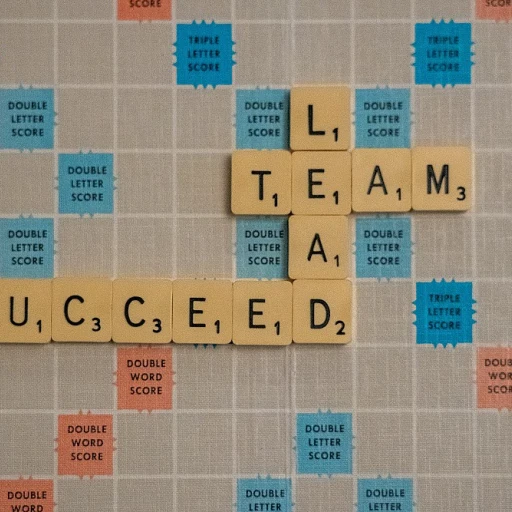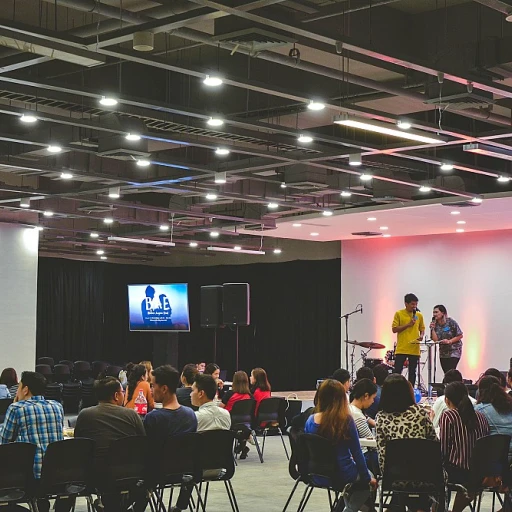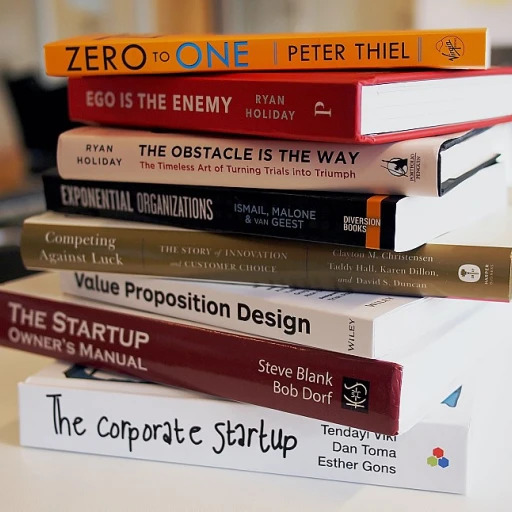
Understanding the importance of organizational skills in modern workplaces
Why Organizational Skills Matter in Today’s Workplaces
Organizational skills have become a crucial part of success in modern workplaces. Whether you’re managing a project, collaborating with team members, or handling multiple tasks, the ability to stay organized and prioritize tasks can make a significant difference in performance. Many roles, from project manager to team lead, require strong project management and time management abilities to ensure deadlines are met and goals are achieved.
Employers increasingly value candidates who can demonstrate their ability to manage conflicting priorities, monitor progress, and use tools for regular check-ins and short-term goal setting. These soft skills are not just about keeping a tidy desk; they reflect how someone structures their work, communicates with their team, and adapts to changing demands. For example, a candidate who can provide an example time when they had to fill a gap in a project or describe how they stay organized during busy periods shows practical skills that are highly sought after.
Behavioral interview questions are a practical way to assess these organizational skills. By asking candidates to answer questions about real-life situations—such as how they track progress, ensure regular check-ins, or prioritize tasks—interviewers can gain deeper insights into a candidate’s work habits and ability to handle the demands of the role. For more insights on crafting the perfect interview and key questions for potential employees, you can explore this comprehensive guide.
In the following sections, we’ll look at how to design effective behavioral interview questions, the integration of artificial intelligence in the interview process, and best practices for combining human judgment with AI insights. Understanding the importance of organizational skills is the first step in building a strong, effective team that can adapt and thrive in today’s fast-paced work environment.
Behavioral interview questions: a practical approach
Why Behavioral Interview Questions Matter
Behavioral interview questions are a practical approach for evaluating a candidate’s organizational skills. Instead of asking hypothetical questions, interviewers focus on real-life examples from the candidate’s past work experience. This method helps reveal how someone manages projects, prioritizes tasks, and stays organized under pressure. For roles where project management and time management are crucial, such as a project manager or team lead, these questions can provide deeper insights into a candidate’s soft skills and ability to handle conflicting priorities.
How to Structure Effective Questions
To assess organizational skills, interviewers should craft questions that prompt candidates to describe specific situations. The goal is to understand how they plan, monitor progress, and ensure deadlines are met. Here are some tips for structuring these questions:
- Ask for a concrete example time when they had to manage multiple tasks or projects.
- Encourage candidates to describe their process for goal setting and tracking progress.
- Probe for details about the tools or methods used to stay organized, such as regular check-ins or project management software.
- Request that they provide an example of how they handled conflicting priorities or tight deadlines.
- Explore how they ensure team members are aligned and how they monitor progress with short term and long term goals.
Sample Behavioral Interview Questions
Here are a few behavioral interview questions that can help uncover a candidate’s organizational skills:
- Can you provide an example of a project where you had to prioritize tasks with competing deadlines? How did you ensure everything was completed on time?
- Describe a time when you had to organize a team to achieve a specific goal. What steps did you take to keep everyone on track?
- Tell me about a situation where you used tools or regular check-ins to monitor progress on a complex project.
- How do you stay organized when managing multiple short term and long term projects simultaneously?
- Give an example of how you handled a time when your organizational skills were crucial to the success of a project.
These questions not only help interviewers assess a candidate’s ability to stay organized, but also their approach to project management, time management, and teamwork. For more inspiration on crafting the perfect interview, check out key questions for potential employees.
Examples of strong organizational skills behavioral interview questions
Behavioral Questions That Reveal Organizational Strengths
When interviewing for roles that require strong organizational skills, it’s essential to ask behavioral interview questions that prompt candidates to provide concrete examples from their work experience. These questions help assess how applicants manage projects, prioritize tasks, and handle conflicting priorities. The goal is to uncover not just what they say about being organized, but how they actually demonstrate ability in real situations.- Describe a time when you managed multiple projects with tight deadlines. How did you prioritize tasks and ensure nothing fell through the cracks?
This question helps reveal time management and project management skills, as well as the candidate’s approach to goal setting and tracking progress. - Can you provide an example of a project where you had to coordinate with several team members? What tools or methods did you use to stay organized and monitor progress?
Here, you’re looking for their ability to use organizational tools, conduct regular check-ins, and maintain clear communication within a team. - Tell me about a situation where you had to adjust your plans due to shifting priorities. How did you stay organized and ensure your work still met deadlines?
This question assesses adaptability, soft skills, and the ability to handle conflicting priorities without losing track of short term and long term goals. - How do you track progress on your tasks and projects? Can you share an example time when this approach helped you achieve a crucial role objective?
This invites candidates to discuss their preferred organizational systems and how these contribute to successful outcomes. - Give an example of how you support your team members in staying organized during a busy period. What strategies do you use to ensure everyone is aligned?
This question highlights collaborative organizational skills and leadership in project management.
Integrating artificial intelligence into the interview process
Leveraging AI to Enhance Behavioral Interviews
Artificial intelligence is playing a crucial role in transforming how organizations assess candidates’ organizational skills during interviews. By integrating AI into the interview process, HR teams can streamline the evaluation of soft skills such as time management, project management, and the ability to prioritize tasks. AI-powered platforms can analyze candidates’ answers to behavioral interview questions, helping recruiters identify patterns that demonstrate strong organizational abilities. For example, when a candidate describes how they stay organized while managing conflicting priorities or how they ensure regular check-ins with team members to monitor progress, AI can flag these responses for further review.How AI Supports Interviewers
AI tools can assist interviewers in several ways:- Automatically transcribing and analyzing responses to organizational skills questions
- Highlighting keywords related to project management, goal setting, and time management
- Comparing candidate answers to a database of high-performing responses for similar roles
- Providing suggestions for follow-up questions to fill gaps or clarify examples
- Tracking candidate consistency across multiple interview rounds
Improving Fairness and Consistency
AI-driven interview platforms can also reduce bias by standardizing the way organizational skills are assessed. Every candidate is asked the same set of behavioral interview questions, and their answers are evaluated using consistent criteria. This approach supports fairer hiring decisions, especially for roles like project manager, where the ability to stay organized and monitor progress is essential.Real-World Application
Organizations are increasingly using AI to conduct regular check-ins during the hiring process, ensuring that all candidates are evaluated on their ability to demonstrate organizational skills. By tracking responses over time, AI helps HR teams identify candidates who consistently provide examples of effective goal setting, time management, and collaboration with team members. Integrating AI into behavioral interviews is not about replacing human judgment. Instead, it’s about providing interviewers with better tools to assess crucial soft skills and make informed hiring decisions for roles where organizational skills play a pivotal role.Challenges and ethical considerations with AI in HR interviews
Balancing Automation and Fairness in AI-Assisted Interviews
Artificial intelligence is becoming a crucial tool in HR, especially for screening candidates and analyzing responses to behavioral interview questions about organizational skills. However, integrating AI into the interview process brings challenges and ethical concerns that organizations must address to ensure fairness and transparency.Potential Bias and Data Quality Issues
AI systems rely on historical data to assess answers about project management, time management, and the ability to stay organized. If the data used to train these systems contains biases, the AI may unintentionally favor certain profiles or overlook valuable soft skills. For example, if past data undervalues the way team members describe how they prioritize tasks or monitor progress, the AI might not recognize strong organizational skills in new candidates.Transparency and Explainability
Candidates and HR professionals need to understand how AI evaluates responses to interview questions. When an AI system scores a candidate’s answer about handling conflicting priorities or setting short-term goals, it should be clear what criteria are being used. Lack of transparency can lead to mistrust and make it difficult for candidates to provide example answers that truly demonstrate their abilities.Privacy and Data Security
AI tools often require access to sensitive information, including recorded interviews and detailed responses about how candidates organize their work or track progress on projects. Organizations must ensure that this data is securely stored and handled in compliance with privacy regulations. Regular check-ins and audits of AI systems are necessary to protect candidate information.Human Oversight Remains Essential
While AI can help identify patterns in how candidates describe their role in a team or provide examples of meeting deadlines, human judgment is still needed. HR professionals should use AI insights as one tool among many, ensuring that final decisions reflect a holistic view of each candidate’s skills and experience. Combining AI with regular check-ins and feedback from interviewers helps maintain a fair and balanced hiring process.Addressing Ethical Concerns
To ensure ethical use of AI in HR interviews, organizations should:- Regularly review and update AI algorithms to minimize bias
- Clearly communicate to candidates how AI is used in the interview process
- Provide opportunities for candidates to clarify or expand on their answers
- Maintain transparency about how data is collected, stored, and used
Best practices for combining human judgment and AI insights
Balancing Human Insight and AI-Driven Analysis
When integrating artificial intelligence into the interview process, it is essential to strike the right balance between technology and human judgment. AI can help analyze responses to behavioral interview questions about organizational skills, but human evaluators bring context, empathy, and a nuanced understanding of soft skills that algorithms may miss. For example, while AI tools can track progress on how candidates describe their ability to stay organized or prioritize tasks, only a human interviewer can assess the authenticity and depth of these answers.
Practical Steps for Effective Collaboration
- Define clear criteria: Before the interview, outline what strong organizational skills look like for the specific role. This helps both AI and human interviewers evaluate answers consistently.
- Use AI for structured data: Let AI handle repetitive tasks, such as scoring responses to standardized questions about project management or time management. This frees up human interviewers to focus on follow-up questions and deeper insights.
- Regular check-ins: Schedule regular check-ins between HR professionals and AI system outputs to ensure alignment. If the AI flags a candidate’s answer as weak on goal setting, a human can probe further with a tailored follow-up question.
- Monitor progress and adjust: Track progress by reviewing hiring outcomes and feedback from both team members and candidates. Adjust the balance between AI and human input as needed to improve the process.
Ensuring Fairness and Transparency
Transparency is crucial when using AI in interviews. Candidates should know if AI tools are being used to assess their organizational skills or project management abilities. HR teams must also ensure that AI systems are regularly audited for bias, especially when evaluating soft skills like the ability to stay organized or handle conflicting priorities. Human oversight helps ensure that the technology supports, rather than replaces, fair and ethical decision-making.
Continuous Learning for Teams and Tools
Both HR professionals and AI systems benefit from ongoing learning. Teams should stay updated on best practices for behavioral interview questions and the latest developments in AI for HR. Meanwhile, AI tools should be retrained with new data, such as examples of successful hires who demonstrated strong organizational skills in their work. This continuous improvement loop helps ensure that both humans and machines are equipped to fill crucial roles with candidates who can manage tasks, meet deadlines, and contribute to the team’s success.












